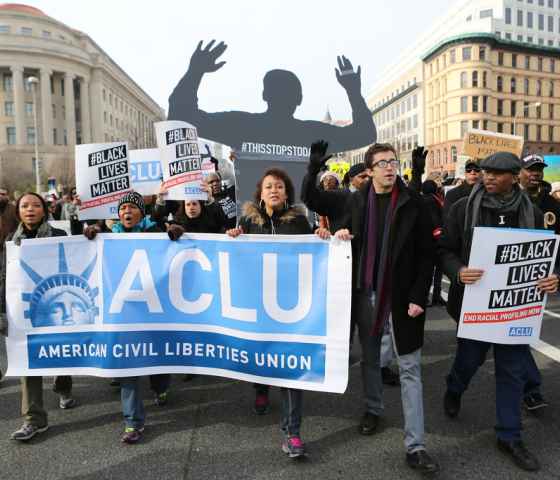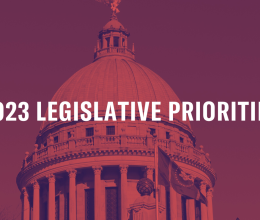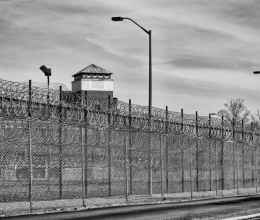Prison Crisis Endangers the Public, Prison Guards, and Incarcerated Mississippians
JACKSON, Mississippi – In response to three Mississippi prison inmates escaping in a single day last week, reports of gangs effectively running prisons, allegations of repeated 24-hour shifts that overworked prison guards are forced to endure as part of outmanned skeleton crews, and recent pleas from the Commissioner of the Mississippi Department of Corrections for millions of dollars to address the understaffing crisis in Mississippi prisons, representatives of the ACLU of Mississippi, the MacArthur Justice Center at the University of Mississippi School of Law, the Mississippi Center for Justice, and the Southern Poverty Law Center claim that these conditions are the inevitable result of the Mississippi Legislature’s historic practice of passing laws requiring over-incarceration but refusing to provide MDOC with the funding necessary to keep the public, prison staff, and incarcerated Mississippians safe.
Joshua Tom, Interim Director of the ACLU of Mississippi, stated, “Mississippi has a mass incarceration problem. Dramatic increases in imprisonment over the last 40 years have brought prisons and jails across the state to the breaking point. Changes in law and policy, not crime rates, explain most of this increase. Mississippi turned to imprisonment as the cure-all not only for crime and public safety but also for mental illness, addiction, and poverty. The criminal justice system and prisons cannot deal with all of these issues, as recent news has shown. Mississippi must treat the cause of the problem – the policies that have led to mass incarceration – as opposed to simply reacting to the symptoms.”
According to the civil rights organizations, MDOC has more than 500 unfilled guard positions, and new guards in Mississippi prisons are paid only approximately $2,100 per month. Recruiting has proven difficult, as evidenced by the fact that during the most recent legislative session MDOC Commissioner Pelicia Hall requested $7 million to increase pay for MDOC’s more than 2,000 employees. The Legislature denied that request and gave MDOC only $1.5 million to be used for salary increases.
“Mississippi politicians talk about how tough they are when it comes to fighting crime, but we need to ask whether they are being smart,” said Cliff Johnson, Director of the MacArthur Justice Center at the University of Mississippi School of Law. “You can’t throw people in prison for years on end for every offense under the sun and then act shocked when the prison population swells to 20,000 and you can’t afford the astronomical price tag that goes along with having one of the highest incarceration rates in the world.” Johnson concluded, “It seems to me that the only way Mississippi can afford the cost of prisons that actually keep people safe is to reduce significantly the number of people we lock up and to impose shorter sentences for many crimes. There is a way to do that thoughtfully and safely.”
A recent Marshall Project report cited low unemployment rates and the resulting competition for prospective employees as a complicating factor in hiring new prison guards. When people can make comparable wages working in retail or food service jobs, convincing them to work in a prison is hard. Beth Orlansky of the Mississippi Center for Justice addressed the importance of the state of Mississippi paying competitive wages to those working in prisons, mental health facilities, and other vital jobs affecting public safety, “We cannot continue to ask people to put their lives on the line in making prisons safe while paying them salaries below a living wage. We must make it a priority to pay them enough to cover their living expenses so that we can attract qualified people in these positions.”
“Last year, the Southern Poverty Law Center took the state of Mississippi to trial over the inhumane and unconstitutional conditions at the East Mississippi Correctional Facility, many of which are the result of systematic understaffing,” said Paloma Wu, senior staff attorney at the Southern Poverty Law Center. “Those working for and imprisoned by MDOC have suffered injury and death because over-incarceration and under-funding have made holding people in cages impossible. Staff vacancy rates run between 42 and 48 percent at the Mississippi State Penitentiary at Parchman, Central Mississippi Correctional Facility, and South Mississippi Correctional Institution. Candidates in this year’s elections should inform voters how they plan to address this public safety crisis.”
Attorneys for the civil rights organizations are urging voters to demand that their elected officials support criminal justice reform that decreases the number of people in Mississippi prisons and provides programs and funding necessary to keep the public, prison workers, and incarcerated people safe.







